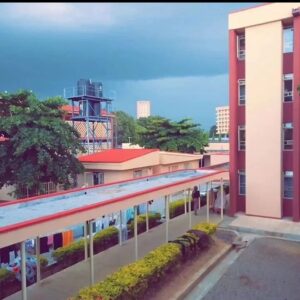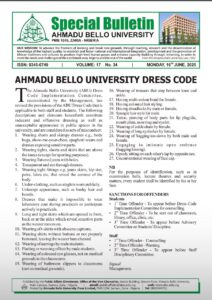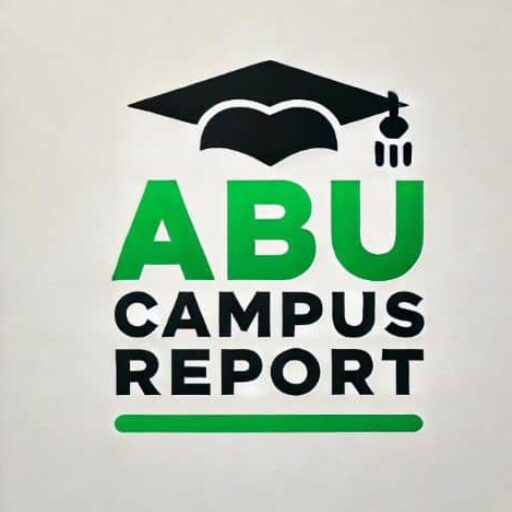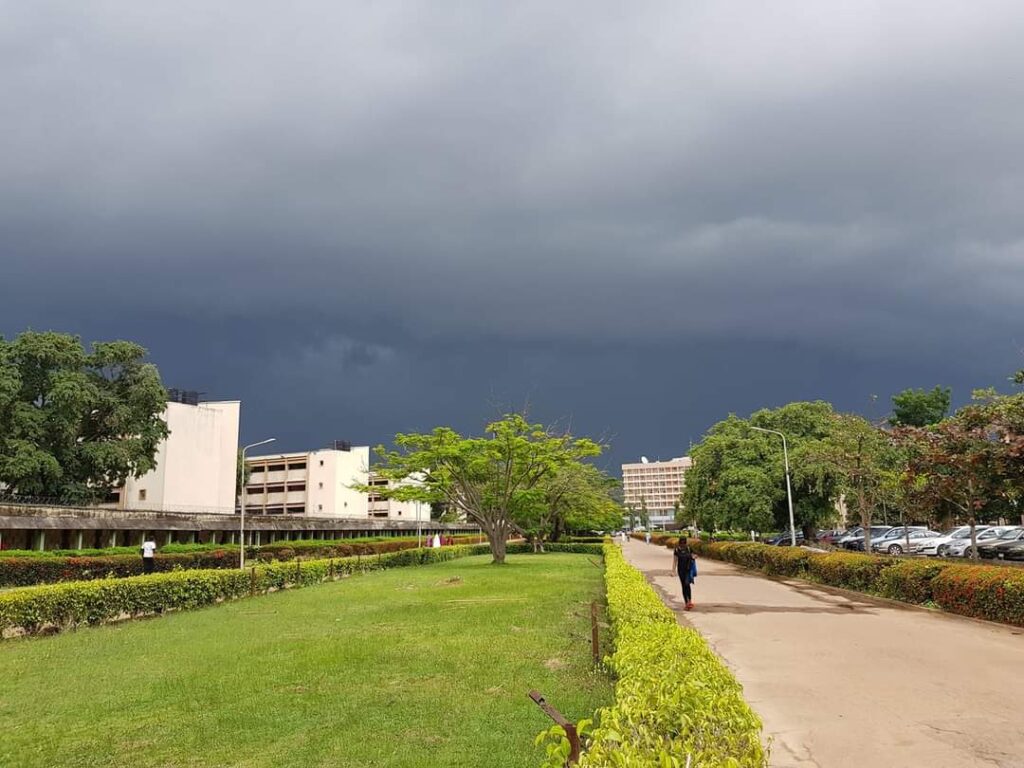New to ABU Zaria?This complete fresher’s guide covers everything you need to know, from hostel life and dress code to Zaria weather, campus culture, and more.
Congratulations on securing admission into Ahmadu Bello University (ABU), Zaria one of the most respected and prestigious universities in Nigeria.
As a fresher, stepping into a new environment can be both exciting and a little overwhelming. From understanding how the campus system works to settling into hostel life, adjusting to Zaria’s weather, and getting used to the dress code, there’s a lot to learn before resumption.
In this guide, we’ll walk you through some of the key things every new ABU student should know before arriving on campus. Whether you’ll be studying in Samaru or Kongo Campus, this article will help you get prepared and start your ABU journey on the right foot.
Important Things to Know Before Resuming at ABU Zaria
ABU Campuses
Ahmadu Bello University operates on two main campuses Samaru Campus and Kongo Campus.
Samaru Campus is the heart of the university. It houses most faculties, including Arts, Sciences, Engineering, and Social Sciences, as well as the main administrative buildings. The campus is always lively and full of activities. You’ll also find a large Chapel and Catholic Church for Christian students, and a Central Mosque for Muslim faithful, making it a welcoming place for everyone.
On the other hand, Kongo Campus is home to the Faculty of Law and the Faculty of Administration. It’s usually quieter and less crowded compared to Samaru since it hosts only a few faculties.
For easy movement, there are campus shuttle buses that run between Samaru and Kongo every day, allowing students to move conveniently between the two campuses.
YOU MAY READ: 6 Reasons Why ABU Zaria Is One of the Best Universities in Nigeria
Hostel Life
In this section we will discuss in details all you need to know about the various hostels in ABU, from the best hostel to the least prefer by students, rules and regulations and other hostel tips.
Female Hostels at Samaru Campus
There are three main female hostels in the main campus: Amina, Ribadu, and Suleiman. Each has its pros and cons, so here’s what you should know:
Amina Hostel
Amina Hostel is one of the most sought after female hostels on campus. Many girls love it because it’s neat and comfortable compared to most others.

Facilities:
- Constant water supply (though not perfect in all blocks)
- Decent toilets and bathrooms
- A garden where you can read or relax
- Shops within the hostel
- A mosque (also a quiet reading spot)
- A cafeteria that serves rice, moi moi, swallow, and more
- A salon inside the cafeteria
- A common room with a TV and free Wi-Fi
Rooms are available in 2, 4, and 6 occupants per room
❌ Downside: The rooms aren’t very spacious, but overall, Amina is one of the best hostels on campus.
Ribadu Hostel
Ribadu is also a good choice and, honestly, even more beautiful than Amina.
The rooms are large and comfortable, giving students enough space to move around.
However, the main challenges are water and electricity sometimes the water supply is poor, and power can be unstable. Still, Ribadu remains one of the most preferred hostels among female students.
Suleiman Hostel
Suleiman is massive you could actually get lost inside! 😅
While it’s spacious and lively, it has its own challenges.
The toilets need maintenance, and theft cases are more common here (to be fair, that can happen in any hostel). You may also experience long queues at the water taps, especially in the mornings.
On the bright side, Suleiman rooms are slightly more spacious than those in Amina or Ribadu.
Facilities and Services in the Samaru female hostels
Each hostel comes with:
- Bathrooms and washing areas
- Laundry sections (you can also pay someone to wash for you if you’re busy)
- A common room with a TV (though, fair warning, it’s usually Zee World on repeat 🙄)
- Free Wi-Fi in the common room (please don’t use it to download full Netflix series 😪)
Female Hostels at Kongo Campus
Kongo Campus has three main female hostels:
Hostel 1 & 2, Hostel 3, and Sardauna & Bedde. Each has its own unique setup, so let’s look at them one after another.
Hostel 1 & 2
Hostel 1 & 2 are the best hostels on Kongo Campus. They consist of two main buildings and several extensions.
Both hostels have a reliable water supply, enough toilets and bathrooms, and spacious rooms, which makes them the top choice for many students.
There’s a room of 2, 4 and 6 people in the hostel.
Hostel 1 has just one extension, but the room of 2 in that extension is quite small as compare to others.
Hostel 2 has two extensions the new and the old. The new extension has rooms of 2, 4, and 6, and even a single room (room of 1), although that one is usually hard to get because everyone wants it.
Overall, Hostel 1 & 2 offer comfort and convenience. If you’re lucky enough to get a space here, you’ll enjoy your stay.
Hostel 3
Hostel 3 mostly contains rooms of 2. It’s quieter but not as lively as Hostel 1 & 2.
The main drawback is the water supply, which isn’t as reliable. On the positive side, there’s a mosque inside the hostel, making it convenient for Muslim sisters to observe prayers without leaving the building.
If you don’t mind a calmer environment and can manage the water issue, Hostel 3 can still serve you well
Sardauna & Bedde Hostels
These two hostels are located close to each other but are quite different in condition and design.
Sardauna Hostel is one of the oldest hostels on Kongo Campus. The building is not in great shape, and I honestly wouldn’t recommend choosing it if you have other options. It’s made up mostly of flats (not storey buildings) with rooms of 4 and 6.
Bedde Hostel, on the other hand, is newer, more modern, and generally more comfortable. Unlike Sardauna, Bedde has ceiling fans in the rooms, which is a big advantage during hot periods. It’s considered one of the better options for students who prefer a cleaner and more organized environment.
Quick Tips for Kongo Campus Hostels
- Go for Hostel 1 & 2 if you want a balance of comfort and accessibility.
- If you prefer a quiet space, Hostel 3 might work just be ready for water challenges.
- Avoid Sardauna if possible; Bedde is a far better alternative.
- Always secure your belongings and keep your space tidy.
Male Hostels in Samaru Campus
Ahmadu Bello University’s Samaru Campus has four main male hostels:
Dangote, ICSA/Ramat, Danfodio, and Shehu Idris. Each has its own unique vibe and experience, so let’s break them down.
Dangote & Shehu Idris Hostels
These two are among the best equipped male hostels in ABU right now. They have fans, tiled floors, good toilets, and are located in Phase 2, a calm and quiet environment with tight security.
The only downside is the distance from lecture halls. You’ll likely need to take a bike or shuttle bus to get to the main campus every day. Still, many students prefer these hostels for their cleanliness, comfort, and peaceful atmosphere.

ICSA/Ramat Hostels
Located close to key faculties like Engineering, Social Sciences, and others, ICSA and Ramat are known for their vibrant environment and social activities. You’ll find gaming centers, a snooker board, and even food spots like Kunu and Akara joints around.
ICSA Hostel:
Rooms are for four occupants. Each block has toilets that are still manageable. Water and electricity are fairly stable, though some blocks (like J, K, L, M) occasionally have poor network service.
Ramat Hostel:
Shares the same fence with ICSA. Rooms are for six occupants, with water and electricity quite stable. The toilets are okay, though a few blocks still struggle with maintenance. Security is decent theft isn’t common, but still keep your belongings safe.
Danfodio Hostel
Danfodio Hostel is close to the Faculty of Medicine and the Samaru Market, which makes shopping for food and essentials easier. Rooms are for four occupants, and the environment is friendly and active.
The hostel recently underwent renovation, which is good news for new students. The old Danfodio extension used to be quite scary (ask any senior student 😂), but it’s now being improved to give residents a better experience.
General Hostel Rules and Regulations
Before settling in, keep these in mind:
- The hostel gate closes by 12 midnight for female students. If you return late, you’ll have to explain to the security 😬
- Contraband items like heaters, hot plates, and stoves are not allowed.
- Always keep your room clean dirty rooms can even get locked by hostel management!
- Respect security officers and hall admins they’re there to help maintain order.
General Safety and Security Tips
- Always lock your doors before leaving or sleeping.
- Keep valuables in a locker and secure it with a padlock.
- Always carry your admission letter or ID card you might be asked to show it at the gate.
- Report any issues whether it’s electricity, plumbing, or theft to your hall administrators immediately.
Tips for Living in the Hostel
- Stay clean, hygiene is important for your health and comfort.
- Share space respectfully everyone deserves peace.
- Be smart don’t be too trusting as a fresher (For example: “Borrow me Maggi” today, and your whole locker disappears tomorrow 😩)
ALSO READ: ABU DLC courses and school fees
Dress Code at ABU
Ahmadu Bello University (ABU) promotes decency and discipline, and this reflects strongly in its dress code policy. Students are expected to dress modestly within and around the campus at all times.
For male students, dreadlocks (locks), sagging, and crazy jeans are not allowed. For female students, mini skirts, crop tops, transparent outfits, or other revealing clothes are strictly prohibited.
Students coming from off-campus should also take note security officers at the gate may deny entry to anyone dressed inappropriately.
To ensure everyone clearly understands what’s acceptable and what’s not, the university management released an official bulletin outlining the approved dress code for all students.
The guidelines below serve as a reminder for both freshers and returning students to always dress appropriately on campus.

Remember, dressing decently doesn’t just show respect for the university, it also reflects who you are. So, while you stay stylish, make sure it’s within the school’s rules. Stay smart, stay confident, and represent ABU proudly.
RECOMMENDED: ABU Zaria Cut Off Mark
Off Campus Accommodation at ABU Zaria
Finding accommodation off campus can be one challenges for freshers, especially around Samaru. The cost of living off campus tends to be higher in Samaru because of its large student population and proximity to the main campus.
If you’re studying in Kongo Campus, however, you’ll notice that accommodation is slightly more affordable and easier to find.
The best time to secure a good apartment is usually between December and early January, before most students resume. At that time, many nice apartments are still vacant, and prices are a bit negotiable.
Below is a general price range to guide you when searching for off-campus accommodation in Samaru and Zango:
Apartment Budget Range – Zaria (Samaru & Zango)
Note: Prices vary depending on location, quality, and available amenities.
SAMARU AREA
Single Self-Contained:
- Shared toilet — ₦60,000 – ₦90,000
- Private toilet & kitchen (no water, near school) — ₦150,000 – ₦180,000
- After the railway — ₦110,000 – ₦150,000
- With water, toilet & kitchen — ₦180,000 – ₦250,000
- With water, security & POP ceiling — ₦250,000 – ₦300,000
Fully Furnished Self-Contained:
- With tight security — ₦500,000 – ₦700,000
Room & Parlour:
- Without water — ₦250,000 – ₦270,000
- With water — ₦300,000 – ₦400,000
- With water & POP ceiling — ₦400,000 – ₦600,000
ZANGO AREA
- Standard 2-Bedroom Flat — ₦550,000 – ₦1,000,000
- Standard Room & Parlour — ₦300,000 – ₦600,000
FEMALE APARTMENTS (mostly near school)
- Without water — ₦130,000 – ₦150,000
- With water — ₦180,000 – ₦250,000
- With POP ceiling — ₦230,000 – ₦300,000
- With solar, furniture & utility bills included — ₦270,000 – ₦400,000
Pro Tips
- Always inspect the apartment physically before paying, don’t rely on pictures alone.
- Ask seniors or trusted agents around the school for recommendations.
- Houses near campus fill up quickly, so start searching early.
Zaria Weather
Zaria has a unique weather pattern that every fresher should be ready for. The city is usually cold between January and February due to the harmattan season, and the cold breeze can be quite intense, especially in the mornings and late evenings.
It’s a good idea to come prepared with sweaters, cardigans, and warm clothing to stay comfortable during this period. The weather gets warmer around March to May, while August and September are known for frequent rainfall, so having an umbrella or raincoat handy is also helpful.
Where to Buy Things (Markets and Shops Around ABU)
There are several places within and around Ahmadu Bello University where students can easily buy what they need. Inside the campus, you’ll find different shops and mini-stores in the hostels and faculty areas. There’s also the ABU Community Market, located within the school, where you can get food items, provisions, and other essentials at fair prices.
If you plan to buy things in bulk, Samaru Market is a great option. It’s close to the main campus, and goods are usually a bit cheaper compared to prices inside the school.
For students looking to buy clothes or any kind of goods Sabon Gari Market is another popular choice, you can find almost anything in the market, although it’s a bit farther from campus.
When it comes to fixing or buying of gadgets, men’s clothing PZ is a popular choice.
Final Thoughts
Starting life at Ahmadu Bello University is an exciting experience, but it can also feel a bit overwhelming at first. From getting comfortable with hostel life to finding affordable off-campus accommodation and knowing where to buy things, every little detail matters.
Take your time to explore, ask questions, and connect with other students ABU has a strong community that’s always willing to help. Once you settle in, you’ll realize that life in ABU isn’t just about lectures and exams; it’s about growth, friendship, and unforgettable memories.
Welcome to ABU, and enjoy every moment of your journey!

